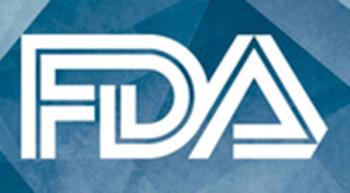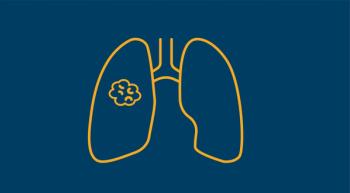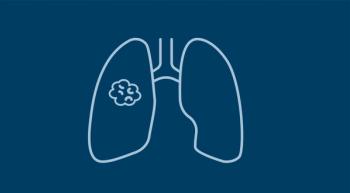
Cabozantinib and atezolizumab led to a statistically significant progression-free survival improvement in patients with metastatic castration-resistant prostate cancer and measurable soft tissue disease.
Caroline Seymour joined MJH Life Sciences in 2018 and has expertise in video production and print/digital publication. Email: cseymour@onclive.com

Cabozantinib and atezolizumab led to a statistically significant progression-free survival improvement in patients with metastatic castration-resistant prostate cancer and measurable soft tissue disease.

The resubmitted biologics license application for remestemcel-L has been issued a complete response letter.

CB-010 led to a 94% overall response rate among 16 patients with relapsed/refractory B-cell non-Hodgkin lymphoma.

The FDA has launched a priority review of capivasertib and fulvestrant based on data from the phase 3 CAPItello-291 trial.

For patients with myelofibrosis receiving pacritinib, spleen volume reduction was associated with improved overall survival.

The FDA has launched a priority review of repotrectinib based on data from the phase 1/2 TRIDENT-trial.

The phase 1/2 TRANSCEND CLL 004 trial met its primary end point by demonstrating that lisocabtagene maraleucel elicited responses in patients with relapsed/refractory chronic lymphocytic leukemia/small lymphocytic lymphoma.

Frontline chemoimmunotherapy was associated with improved median overall survival, compared with chemotherapy alone, in patients with advanced non–small cell lung cancer.

Adjuvant mRNA-4157, in combination with pembrolizumab, improved recurrence-free survival, and distant metastasis-free survival, for patients with high-risk melanoma.

Sintilimab plus chemoradiotherapy was associated with better event-free survival rates in locally advanced nasopharyngeal carcinoma than chemoradiotherapy alone.

Updated National Comprehensive Cancer Network guidelines recommend ropeginterferon alfa-2b for patients with polycythemia vera.

Over half of patients with lower-risk myelodysplastic syndrome treated with luspatercept achieved transfusion independence.

Patients with early-stage HER2-positive breast cancer experienced a high rate of pathologic complete response with combined preoperative treatment with atezolizumab, epirubicin, trastuzumab, and pertuzumab.

Trastuzumab deruxtecan outperformed investigators choice of therapy, in terms of safety, among patients with HER2-Low Metastatic Breast Cancer.

Data that was leaked from a 2023 EHA Hybrid Congress Abstracts demonstrated that ciltacabtagene autoleucel reduced the risk of disease progression in patients with relapsed/refractory multiple myeloma.

The pathologic complete response rate with durvalumab was 17.2% vs 4.3% with placebo, reflecting an absolute difference of 12.9%.

The FDA has accepted a biologics license application for a proposed trastuzumab biosimilar. The therapy is being considered as adjuvant therapy for certain HER2-overexpressing cancers.

With a follow-up of 11.7 months, the estimated 12-month progression-free survival rate was 81% in patients who received neoadjuvant olaparib for BRCA-positive ovarian cancer.

At a median of 44.1 months follow-up, the median event free survival was not reached with nivolumab plus chemotherapy vs 21.1 months with chemotherapy alone.

Adding cemiplimab to platinum-doublet chemotherapy improved overall and progression-free survival in patients with advanced non-small cell lung cancer.

The FDA’s Oncologic Drugs Advisory Committee voted 11 to 2 in support of the benefit-risk profile displayed by polatuzumab vedotin-piiq in patients with previously untreated large B-cell lymphoma, including diffuse large B-cell lymphoma not otherwise specified.

In both the KEYNOTE-641 and KEYNOTE-789 trials, pembrolizumab, in addition to standard therapies, did not improve survival outcomes in their target populations.

Atezolizumab did not yield a significant improvement in overall survival compared with placebo plus platinum-based chemotherapy and gemcitabine in patients with untreated locally advanced or metastatic urothelial cancer.

In an 8 to 5 vote, ODAC voted in support of launching 2 single-arm trials seeking to characterize the risk-benefit profile of dostarlimab for patients with dMMR/MSI-H locally advanced rectal cancer.

A combined regimen of mitazalimab and mFOLFIRINOX resulted in a 52% objective response rate among 23 patients with metastatic pancreatic cancer.

In the PEARL trial, monotherapy with durvalumab did not deliver a statistically significant improvement in overall survival vs platinum-based chemotherapy as frontline treatment in patients with PD-L1-high stage IV non–small cell lung cancer.

After 13.1 months of follow-up, the median progression-free survival in patients with EGFR-mutant non–small cell lung cancer who received a sintilimab-based regimen was 5.5 months.

A presentation at the 2022 ESMO Congress found that xevinapant plus chemoradiotherapy decreased the risk of death by twice that of placebo for patients with unresectable, locally advanced head and neck squamous cell carcinoma.

An analysis of patient-reported outcomes showed that patients with advanced ovarian cancer experienced fewer abdominal or gastrointestinal toxicities with mirvetuximab soravtansine than with chemotherapy.

Phase 2 findings indicate that a combination of avelumab and axitinib may draw promising responses in patients with advanced type B3 thymoma and thymic carcinoma.